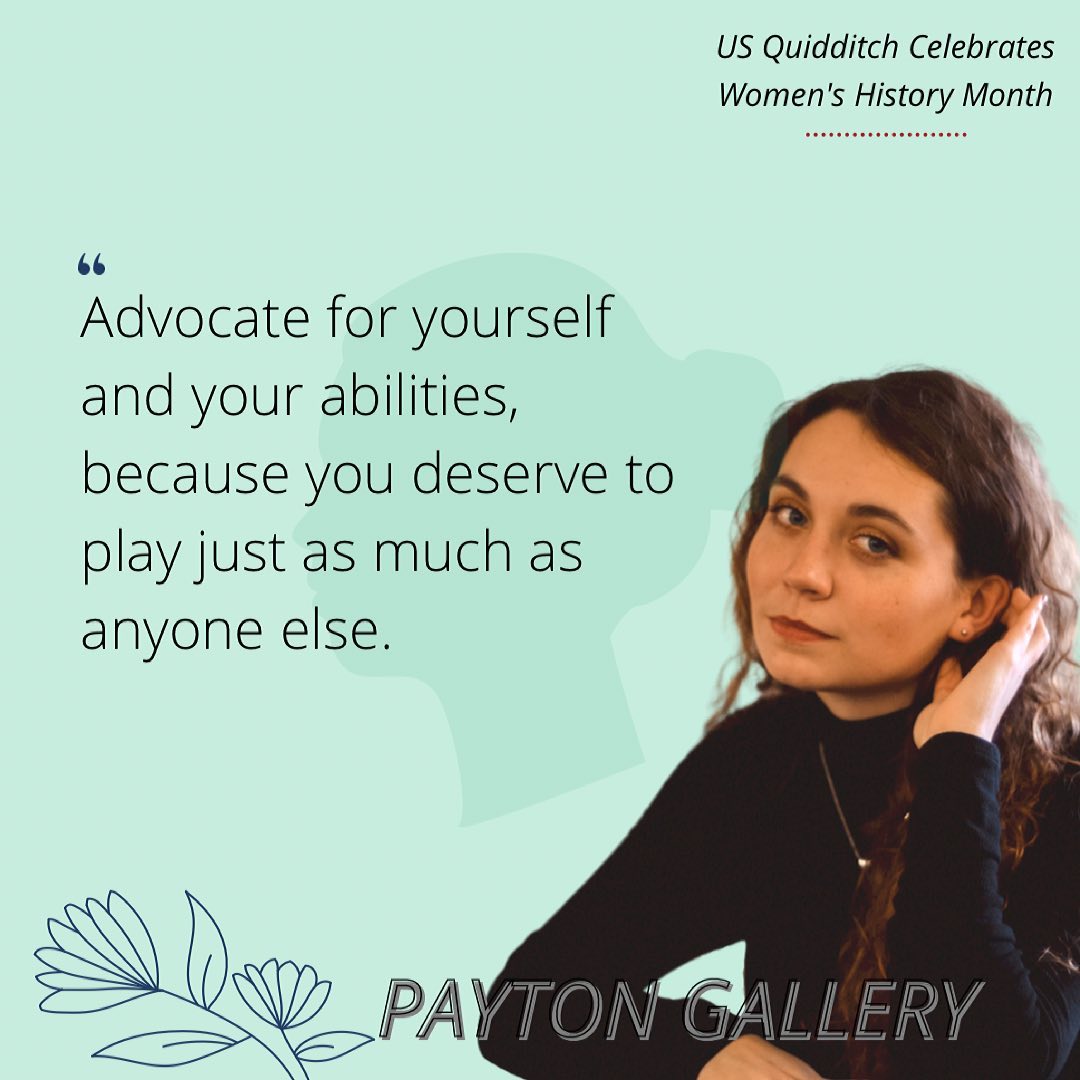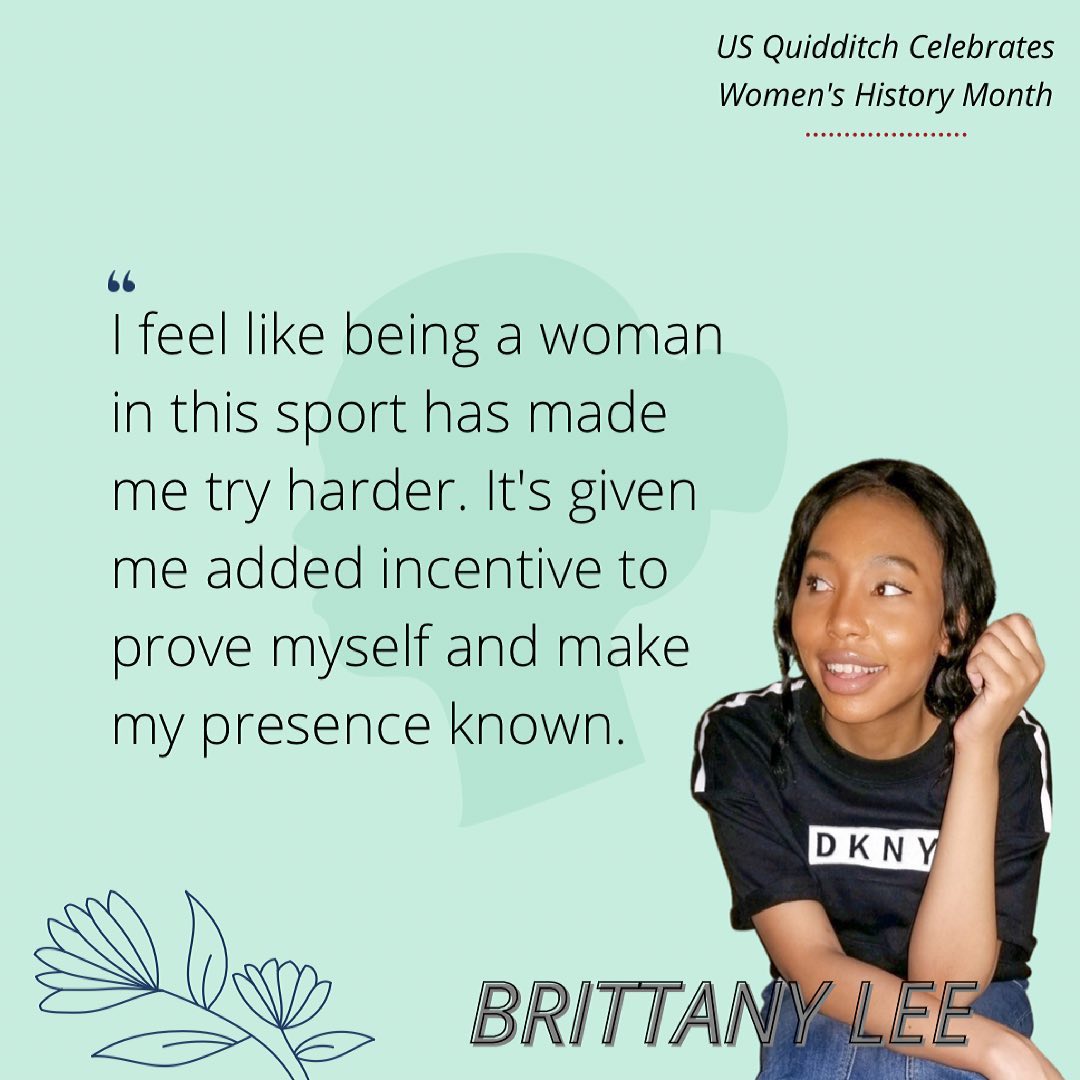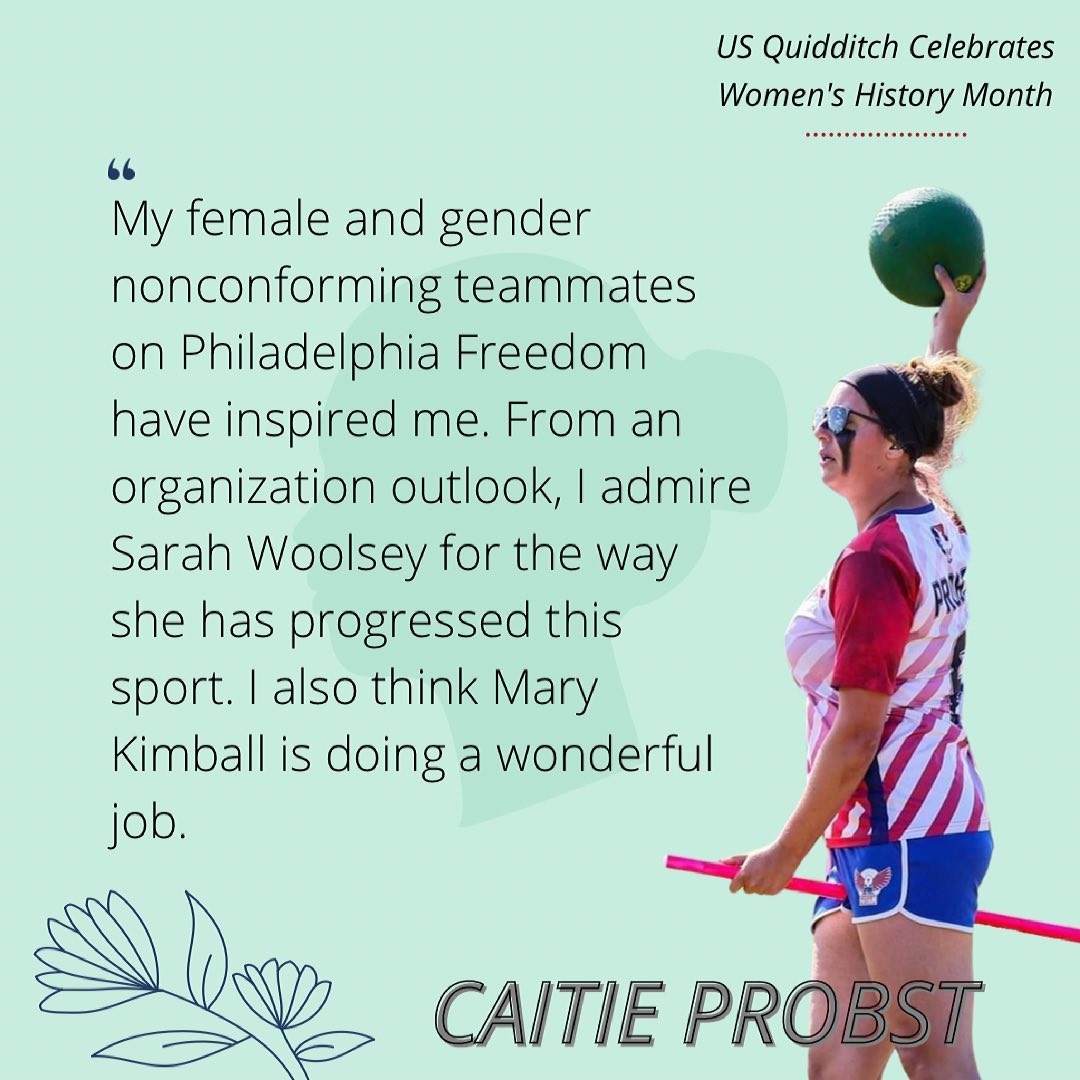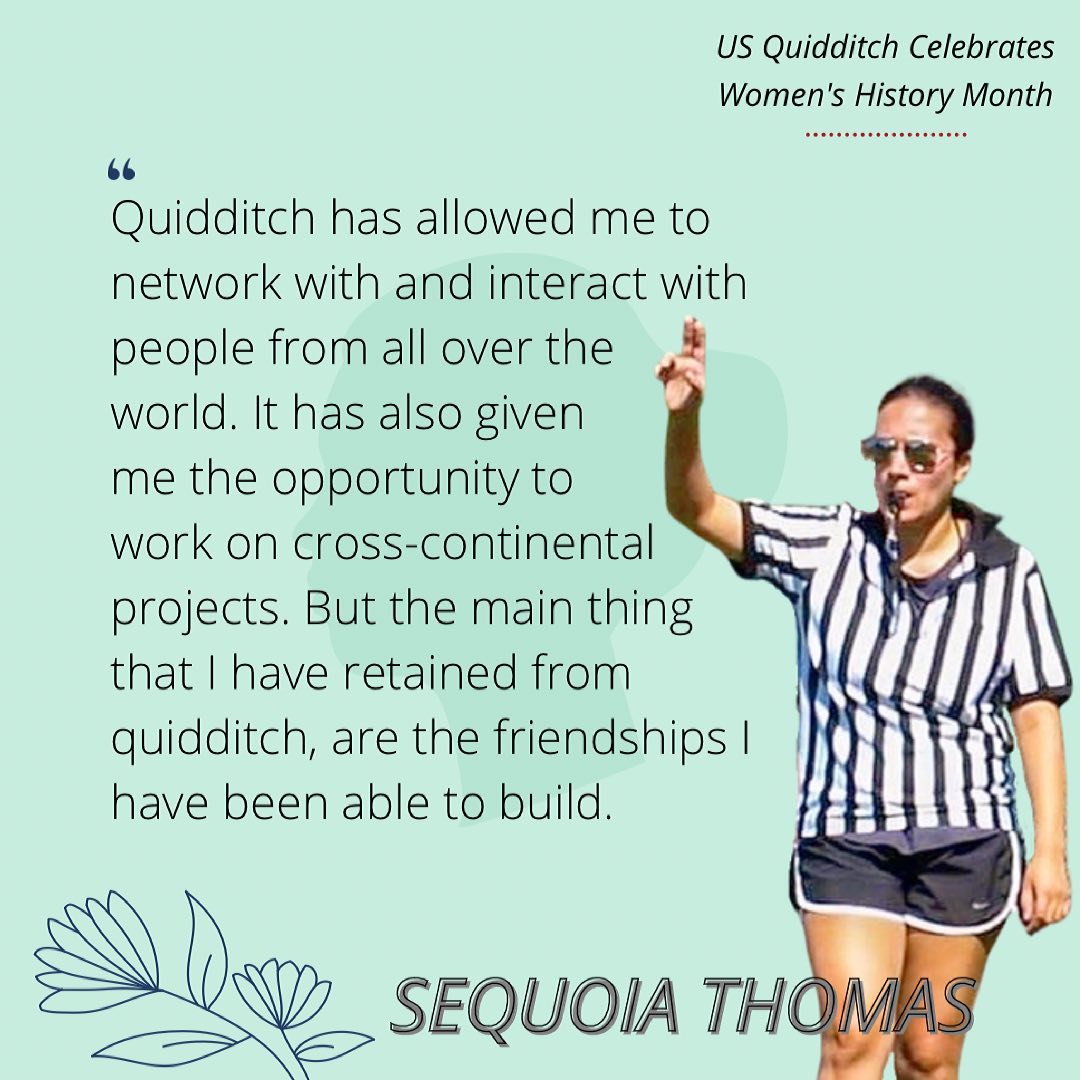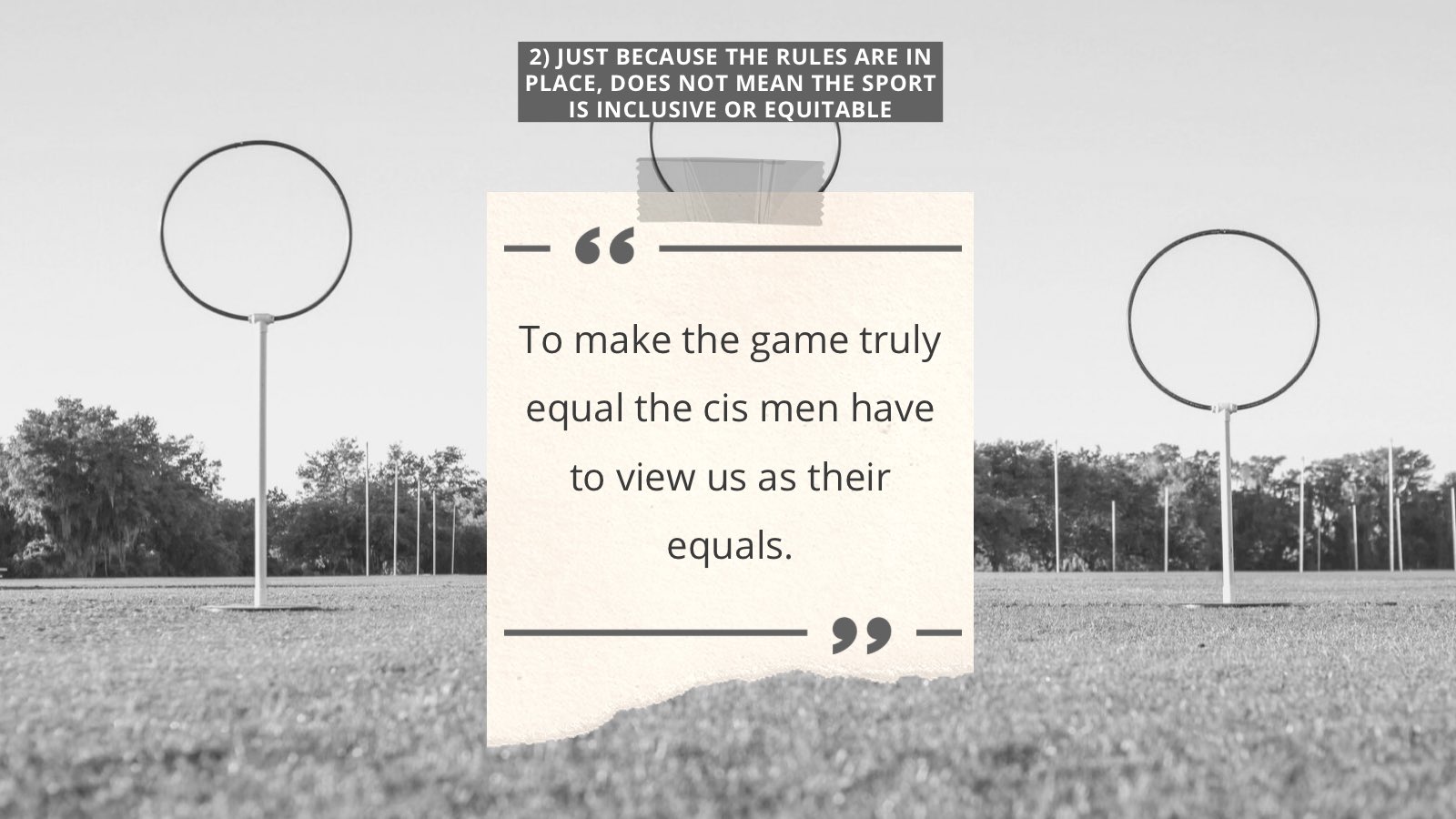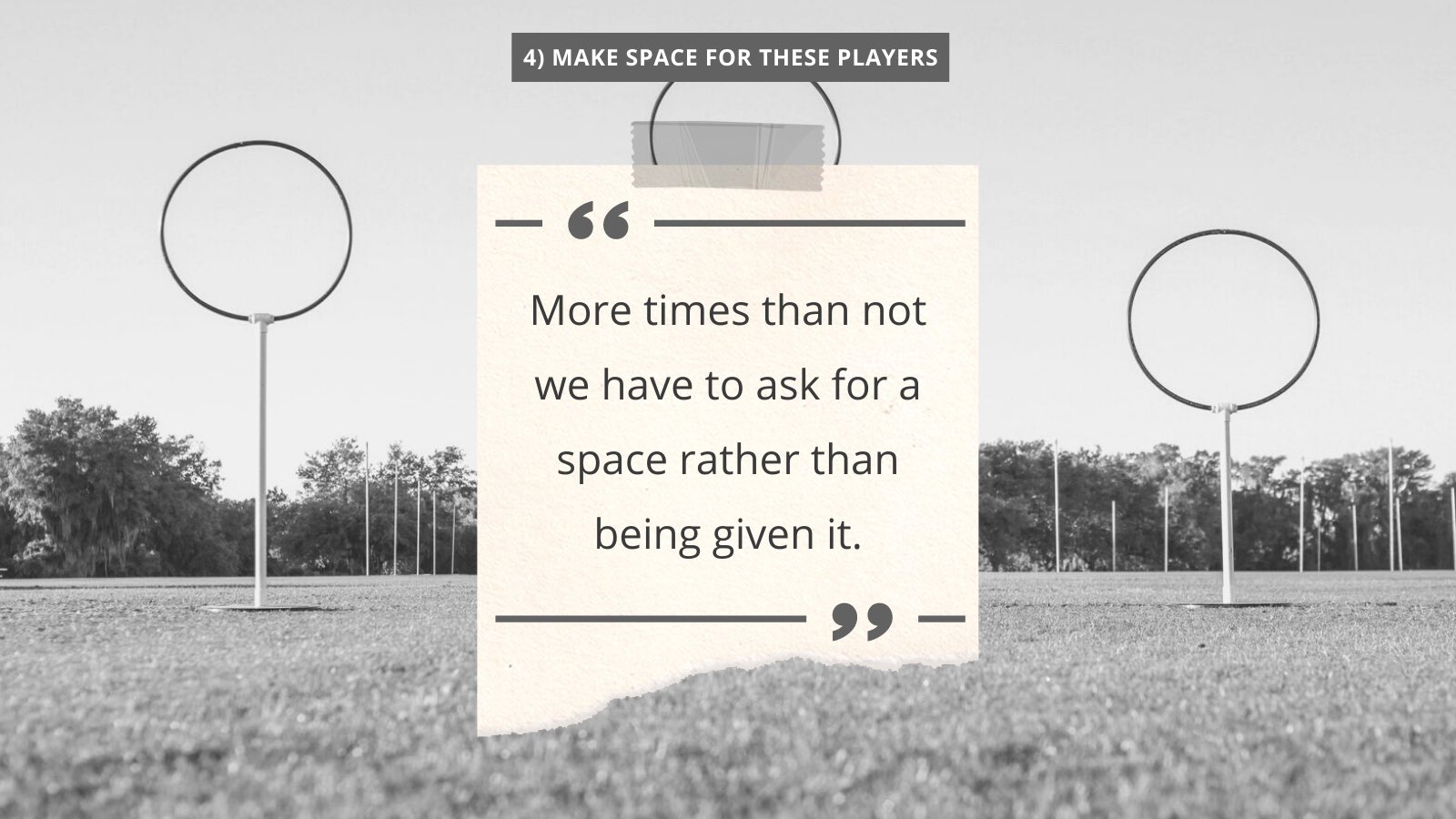USQ Celebrates Women’s History Month
March is Women’s History Month, and US Quidditch (USQ) decided to celebrate it by sharing the stories and experiences of women in the Muggle quidditch community.
To honor the women [who] came before us in quidditch and to hopefully inspire those [who] will come after, we reached out to a few women who make this sport as wonderful as it is in order to ask them to talk about their experiences in quidditch.
Five women were chosen for this celebration:
- Payton Gallery from Iowa Quidditch
- Brittany Lee, a player for Boston University Quidditch and a volunteer for Major League Quidditch
- Ellie Lisec, the current captain of RPI Quidditch, a former player on two MLQ teams, and a member of the USNT Developmental Academy
- Caitie Probst, the current General Manager of Philadelphia Freedom, elected Head Coach for the team’s next season
- Sequoia Thomas, who is involved in the Referee Development Team of the International Quidditch Association (IQA) and served as Executive Director for the International Referee Development Program
All of them were given the same questions about their experiences, their favorite quidditch memories, and what they would like to say to women who are starting to play quidditch. Quotes from the interviews were posted on the USQ Facebook page.
QuidCon was also held this month. One of the panels, More Than Just a Body on the Field, was about sexism, misogyny, and transphobia in quidditch. It was one of the most important and most attended panels at the event. After the panel ended, the discussion continued on the panel’s Slack channel days after QuidCon itself. This was greatly appreciated by one of the panelists, Jeannette High.
This panel still gives me shivers thinking about how awesome the women, transgender people, and non-binary people in our sport are.

As part of Women’s History Month, High tried to summarize five main issues discussed at the panel and in the Slack channel. The first problem was with putting women and non-binary players together and creating a new binary system: “non-male” and male. Another issue was with the gender maximum rule in quidditch, which doesn’t make the sport automatically equal and comforting for everyone. Women also recognize that the absence of a gender rule might keep them from being sent to the pitch. This leads to another issue: underestimating women. There were interesting stories about it on the Slack channel, such as Bex McLaughlin’s.
The literal best one was… South Regionals 2013. I had shaved my head a few months before that, our jerseys were baggy.
Captain shouting at his teammate: “Mark him, mark him, #6!”
Him: “What? Number 6 is a girl.”
Captain: “Oh, don’t bother, then.”
The player lit[e]rally ran away from me.
… okay, then. I scored, unmarked, open about two minutes later.
High advises that the solution to this is to make space for all players and to appreciate their skills, not their sex or gender. Even if they aren’t so good at the beginning, that doesn’t mean that they should be put aside. Instead, they should be coached and motivated.

